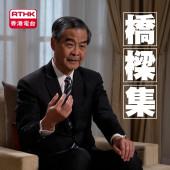 載入中 ...
載入中 ...
返回
Legislator Pierre Chan
2018-03-25
Dear fellow doctors,
Financial Secretary Paul Chan delivered his 2018-19 budget speech last month. The government has increased its recurrent expenditure on healthcare by an average of seven per cent over the past decade. The expenditure on public healthcare services will increase by 13.3 per cent to $71.2 billion in 2018-19, accounting for 17.5 per cent of total recurrent expenditure. An additional recurrent funding of nearly $6 billion will be allocated to the Hospital Authority (HA).
It seems that with this Budget the government has adopted a more proactive approach towards healthcare by injecting additional provision for expenditure on the health sector this year. It also rolled out a myriad of measures to cope with the growing demand for healthcare services. This rescue remedy is better late than never!
However, while the Budget is bold on outlays it is short on vision. Our government lacks a clear action plan to correct the problem of misallocation of resources. Public hospitals received scant mention regarding the installing of hardware (medical beds, operating theatres and advanced medical devices) and software (manpower) in the past years.
There has been unprecedented demand for healthcare services this year marked by an extreme cold spell and the busy winter flu season. Waiting time at accident and emergency departments at four public hospitals - Queen Elizabeth, United Christian, Tuen Mun and Prince of Wales – went beyond eight hours. Temporary beds could be seen everywhere in medical wards and they blocked aisles. It was like a war zone and our colleagues were stretched to almost breaking point.
We are deeply concerned that some of the worst-hit clinical specialties, such as cardiothoracic surgery, anesthesia, obstetrics and gynaecology, experienced a higher turnover rate of senior doctors than other specialties. Many colleagues expressed disappointment at the HA’s failure to address the issues of serious wastage and the low morale among medical staff in public hospitals. With these symptoms and root causes in mind, particular effort should be taken to tackle resource misallocation. Efforts to attract and retain experienced doctors should include enhancement of promotion prospects and formulation of a mechanism to adjust the monthly fixed allowance for HA2 staff. Meanwhile the HA should spend the additional recurrent funding wisely with an eye on the implementation of the second 10-year hospital development plan and new services.
The long-awaited voluntary health insurance scheme is of huge concern in the community. In the Budget, the FS proposed a tax deduction for people who purchase eligible health insurance products for themselves or their dependants under the scheme. The tax deduction ceiling is $8,000 per insured person per year. There is no cap on the number of dependants that are eligible for tax deduction. That is to say, if a person paid HK$8,000 a year for medical insurance and was on the highest tax rate at 17 per cent, the actual amount of reduced tax would be HK$1,360. But the devil is in the detail. The government has shown no commitment to setting up a government-funded pool for high-risk people and those with a medical history.
The current scheme fails to accord better protection on targeted service areas and population groups, namely low income and under-privileged groups; and illnesses that entail high costs. Many criticized the government for backing down under pressure from the insurance sector and questioned whether the scheme could still serve its purpose of reducing the burden on the public healthcare system. Yet, there was much more that needed to be done in these areas and we can only hope that this is just the start.
Several healthcare schemes would also see expansion under the latest Budget. Elderly residents would be allowed to accumulate the value of unspent health care vouchers from the current HK$4,000 to HK$5,000. An extra HK$1,000 worth of vouchers would be provided on a one-off basis to participants. They can use these vouchers on services provided by medical practitioners including dentists and Chinese medicine practitioners in the non-public sector. However two local Chinese newspapers reported that some elderly persons used these health care vouchers to pay for sunglasses and dried fish maw rather than on the services assigned in the scheme. The government should introduce a mechanism to minimize the potential abuse or misuse of funding to ensure that all funding is effectively and efficiently channeled into meeting the needs of the aging population.
Furthermore, HK$500 million will be spent on subsidizing medication for rare disease patients to purchase medication. Some patient groups consider that the HA has not defined rare diseases, causing a lack of database about such patients in Hong Kong.
From my point of view, HK$500 million is simply not enough when the prices for orphan drugs continue to rise. As part of his speech of his State of the Union address, President Donald Trump named tackling the “injustice of high drug prices” a top priority for his administration in 2018. Likewise, our government should also show its determination to demand that the pharmaceutical industry brings down the cost of orphan drugs in order to alleviate the financial burden of rare disease patients and their families.
Noting that the Hong Kong population is aging, policymakers will see new strains on our health services in the years to come. Spending on health and welfare benefits are set to grow as the elderly population climbs. During this same period the government is also planning higher expenditure on infrastructure, education, innovation and technology. If we do not take measures early, we will not have enough revenue to meet our growing needs. I and Professor Yuen Kwok-yung call on the government to set up a fund to help the HA to improve its operational efficiency. In doing so, public hospitals will be able to maintain their service quality and avoid pay cuts during an economic downturn.
Financial Secretary Paul Chan delivered his 2018-19 budget speech last month. The government has increased its recurrent expenditure on healthcare by an average of seven per cent over the past decade. The expenditure on public healthcare services will increase by 13.3 per cent to $71.2 billion in 2018-19, accounting for 17.5 per cent of total recurrent expenditure. An additional recurrent funding of nearly $6 billion will be allocated to the Hospital Authority (HA).
It seems that with this Budget the government has adopted a more proactive approach towards healthcare by injecting additional provision for expenditure on the health sector this year. It also rolled out a myriad of measures to cope with the growing demand for healthcare services. This rescue remedy is better late than never!
However, while the Budget is bold on outlays it is short on vision. Our government lacks a clear action plan to correct the problem of misallocation of resources. Public hospitals received scant mention regarding the installing of hardware (medical beds, operating theatres and advanced medical devices) and software (manpower) in the past years.
There has been unprecedented demand for healthcare services this year marked by an extreme cold spell and the busy winter flu season. Waiting time at accident and emergency departments at four public hospitals - Queen Elizabeth, United Christian, Tuen Mun and Prince of Wales – went beyond eight hours. Temporary beds could be seen everywhere in medical wards and they blocked aisles. It was like a war zone and our colleagues were stretched to almost breaking point.
We are deeply concerned that some of the worst-hit clinical specialties, such as cardiothoracic surgery, anesthesia, obstetrics and gynaecology, experienced a higher turnover rate of senior doctors than other specialties. Many colleagues expressed disappointment at the HA’s failure to address the issues of serious wastage and the low morale among medical staff in public hospitals. With these symptoms and root causes in mind, particular effort should be taken to tackle resource misallocation. Efforts to attract and retain experienced doctors should include enhancement of promotion prospects and formulation of a mechanism to adjust the monthly fixed allowance for HA2 staff. Meanwhile the HA should spend the additional recurrent funding wisely with an eye on the implementation of the second 10-year hospital development plan and new services.
The long-awaited voluntary health insurance scheme is of huge concern in the community. In the Budget, the FS proposed a tax deduction for people who purchase eligible health insurance products for themselves or their dependants under the scheme. The tax deduction ceiling is $8,000 per insured person per year. There is no cap on the number of dependants that are eligible for tax deduction. That is to say, if a person paid HK$8,000 a year for medical insurance and was on the highest tax rate at 17 per cent, the actual amount of reduced tax would be HK$1,360. But the devil is in the detail. The government has shown no commitment to setting up a government-funded pool for high-risk people and those with a medical history.
The current scheme fails to accord better protection on targeted service areas and population groups, namely low income and under-privileged groups; and illnesses that entail high costs. Many criticized the government for backing down under pressure from the insurance sector and questioned whether the scheme could still serve its purpose of reducing the burden on the public healthcare system. Yet, there was much more that needed to be done in these areas and we can only hope that this is just the start.
Several healthcare schemes would also see expansion under the latest Budget. Elderly residents would be allowed to accumulate the value of unspent health care vouchers from the current HK$4,000 to HK$5,000. An extra HK$1,000 worth of vouchers would be provided on a one-off basis to participants. They can use these vouchers on services provided by medical practitioners including dentists and Chinese medicine practitioners in the non-public sector. However two local Chinese newspapers reported that some elderly persons used these health care vouchers to pay for sunglasses and dried fish maw rather than on the services assigned in the scheme. The government should introduce a mechanism to minimize the potential abuse or misuse of funding to ensure that all funding is effectively and efficiently channeled into meeting the needs of the aging population.
Furthermore, HK$500 million will be spent on subsidizing medication for rare disease patients to purchase medication. Some patient groups consider that the HA has not defined rare diseases, causing a lack of database about such patients in Hong Kong.
From my point of view, HK$500 million is simply not enough when the prices for orphan drugs continue to rise. As part of his speech of his State of the Union address, President Donald Trump named tackling the “injustice of high drug prices” a top priority for his administration in 2018. Likewise, our government should also show its determination to demand that the pharmaceutical industry brings down the cost of orphan drugs in order to alleviate the financial burden of rare disease patients and their families.
Noting that the Hong Kong population is aging, policymakers will see new strains on our health services in the years to come. Spending on health and welfare benefits are set to grow as the elderly population climbs. During this same period the government is also planning higher expenditure on infrastructure, education, innovation and technology. If we do not take measures early, we will not have enough revenue to meet our growing needs. I and Professor Yuen Kwok-yung call on the government to set up a fund to help the HA to improve its operational efficiency. In doing so, public hospitals will be able to maintain their service quality and avoid pay cuts during an economic downturn.
Politicians and public figures from a range of backgrounds take turns to have their say on important matters of the day in this personal view programme.
Catch it live: Sunday 8:15am - 8:25am
Podcast: Updated weekly and available after broadcast.












